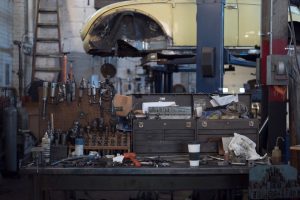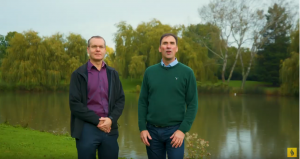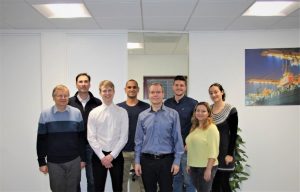Antaco has developed a renewable energy solution to make our world cleaner. But how did the idea of turning waste into carbon-neutral energy become a business with a global strategy? Antaco Founder & CEO Dominik Peus shares his story.
A personal discovery of HTC
More than ten years ago, I came across an article in the news. It talked about the rediscovery of the process of converting organic waste into artificial coal. I was immediately intrigued! Using waste, something considered worthless, to create value, carbon-neutral energy? It sounded like a great idea!
The solution to global issues
Reading about this process, called hydrothermal carbonisation (HTC), I thought about the more than one billion of tonnes of waste, such as household food waste, thrown away and dumped into landfill globally every year. Once in landfill they would emit CO2 and contribute to the warming of the earth. At the same time, I realised the rising requirement for non-fossil energy to power our increasingly urban(ising) world.
I also remembered my time as a volunteer for a local charity in the Peruvian Amazon. Power cuts and the lack of clean water were a daily occurrence. I wondered, could the process of transforming waste into energy also be a solution for “developing” countries?
Testing the magic
HTC sounded too good to be true, so I tested this magic process in his basement at home. But rotting waste can be a messy and smelly business and after a leaky reactor ruined the basement’s carpet, I was banned from any more experiments in the house. My family had enough of my adventurous experiments and so I moved to the garage – which was freezing in the middle of winter!



Developing a clean vision
After a period of experimenting, I was able to verify the chemistry and found it worth pursuing. However, at the time I was involved in research work at a local university and I was unsure whether to leave my steady life for a venture into cleantech entrepreneurship. I decided to seek advice from different entrepreneurs on how to realise my idea. I then started to develop a vision. Antaco should provide the world with clean energy – while also tackling the waste epidemic and reducing the carbon emissions. It should be a solution provider to the issues we currently face on this planet.” After confirming the patent situation, I decided to give it a go.
Building a Business
Having developed a vision, I started a business. That’s when I met Martin Bolton, a low-carbon economy and sustainability specialist who had previously worked as an advisor to SEEDA and the London School of Economics. Martin was a great fit.

Raising funds
Now it was time to raise the funds to grow Antaco. Getting people to notice a business and trust an idea can be tough, but both Martin and myself were confident. One of Antaco’s first grants was part of the Climate KIC UK Venture competition, which Antaco won in 2012. A non-repayable grant of €1million by the UK’s Department of Energy and Climate Change and an Award from Shell’s Regional Springboard followed shortly after.
Setting up offices
The successful raising of funds allowed Antaco to quickly move from my living room to a small office in the centre of Guildford. However, with a growing number of employees and important business partners, the company quickly outgrew its previous office space and set up its operations close to the University of Surrey in Guildford.
Too good to be true?
Ironically, one of the problems Antaco has encountered is that people think it’s too good to be true! For instance, Antaco’s innovative and continuous process converts any type of organic waste, be it wet, dry, woody, into a brand-new form of biofuel we call ‘biocoal’. Antaco’s biocoal can then be used in the existing energy infrastructure of power plants, thereby acting as a direct replacement for fossil fuels. There seems to be a disbelief in the potential the technology has, which, of course is inherent to disruptive technologies.
A vision for the future
The vision for the future is bold. Considering the demand for innovative renewable energy solution and the incredible success the company has had crowdfunding on Crowdcube, Antaco wants to expand general operational capacity to capitalise on the growing number of market opportunities. Once established in the “developed” world, Antaco will also look into making their technology more efficient and economically viable for “developing” countries. The business has had several enquiries from Southern Asia and various African countries, wanting to get rid of their organic waste and invest into renewable energy. This is an exciting opportunity and something Antaco may look at in the future.
You can find out more and invest in Antaco by visiting their pitch page.
Investments of this nature carry risks to your capital. Please Invest Aware

